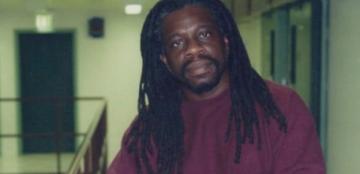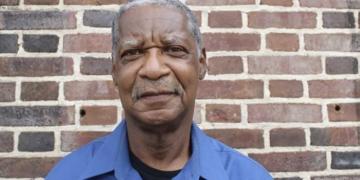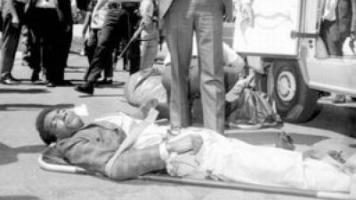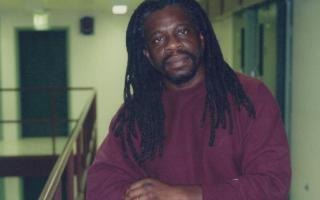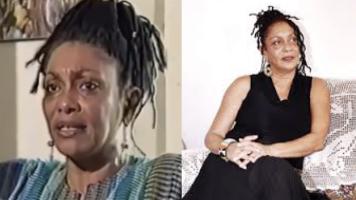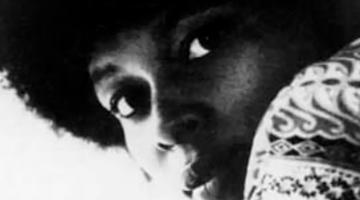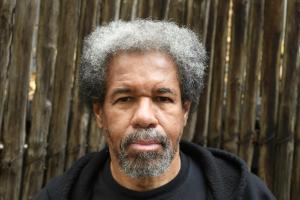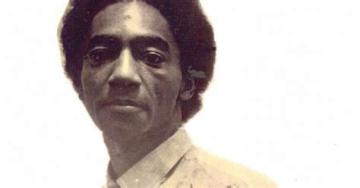It is righteous and correct to say the names of victims of police violence, but we must also “Say the names!” of our living political prisoners.
“They can’t wait for ‘Abolition.’”
BAR executive editor Glen Ford made the following remarks on August 15 to the Black is Back Coalition for Social Justice, Peace and Reparations, which was holding a virtual national conference under the theme, “Fight for Black Power: Free All Political Prisoners.”
Power to the People… and good morning.
We’re going to talk about Political Prisoners, of which the United States has many -- despite the fact that the United States claims it does not, and never has, imprisoned people for political reasons.
Scores of these prisoners are listed by the Jericho Movement. They have been incarcerated for many decades, some for half a century.
Many more have died in prison, and others have been released after enduring years of torture and attempts to break and humiliate them.
That includes esteemed members of the Black Is Back Coalition, who continue their work in the struggle, as do the brothers and sisters that remain behind bars. They have never left the struggle.
Of course, some people and institutions are totally immune from imprisonment – like banking executives, who are considered too big to jail.
But that’s because they are the state – or rather, the State works for people like them. They are part of the ruling class.
The ruling classes have shaped the State to protect their interests. The Capitalist State exists for the purpose of making the nation and the world safe for the Rule of Capital. These people will never be prisoners of any kind – until they are overthrown and removed from power, by the people
That’s why we say, Power to the People.
But the rest of us are subject to become prisoners, whether our offenses are overtly political, or not. Lots of folks who were politically opposed to the laws and practices of the U.S. State have spent some time in jail.
Some of them are eventually exonerated in the eyes of the State, and even venerated – and held up as political icons and paragons of virtue. People like the late John Lewis, who bragged incessantly that he’s been arrested 40 times, in addition to having his head bashed in by police on a bridge that will likely be named after him, now that he’s dead.
But John Lewis’s many periods of incarceration were brief, for a number of reasons. The most important reason, is that Lewis was part of a broad movement, the civil rights movement, that had actively engaged many tens of thousands of people and was supported by many millions more in the United States and around the World.
However, it is very important to understand that this “civil rights” movement was supported – at least tacitly – by a segment of the U.S. ruling class, and by large sections of the U.S. State, in various regions of the country and in the federal government.
Northern Democrats and many Republicans were opposed to Jim Crow. These politicians opposed segregation laws because many of their bosses in the ruling class were against legal segregation.
Many Big Capitalists opposed segregation laws, because Jim Crow put limits on the uses of Capital. Legal Jim Crow prevented the southern states from becoming fully integrated into the national U.S. economy. Segregation limited how investment money could be spent in the South, and the kinds of projects that could be developed.
You can’t have a project like Peachtree Plaza, in Atlanta, if you have to have two sets of escalators, one for whites and one for Blacks. And you can’t make Atlanta or Charlotte or New Orleans an international city, and still keep Jim Crow segregation.
So, much of the U.S. ruling class wanted Jim Crow to go. And this created political space for the civil rights movement in the South – because powerful sectors of the ruling class saw their own interest in ending legal segregation and denial of Black voting rights.
That’s why John Kennedy made that call to Coretta Scott King when her husband was serving time in a Georgia jail, in 1960. Martin Luther King was a political prisoner of the State of Georgia, but elements of the national ruling class intervened, to voice their disapproval.
So, during that period in history, in the early Sixties, Big Capital and many of their political servants were at times allies of the civil rights movement. And they fully expected that civil rights activists, and Black folks in general, would repay them by becoming allies of Big Capital and the U.S. imperial state.
John Lewis totally fulfilled those expectations. He became a loyal servant of the Democratic Party, and a beloved spokesman for U.S. exceptionalism and Washington’s right to rule over the planet.
John Lewis was an imperialist, ruling class success story – and they’re very glad that they didn’t keep him in jail, and that those cops didn’t kill him on the bridge.
Dr. King was a different story.
Even before he began to publicly oppose the Vietnam War and U.S. imperial policy, before he publicly indicted the U.S. state and society for, what he called, the Three Evils of racism, poverty, and war, Dr. King had become the most important Black leader in the country.
And although, in the first half of the Sixties, King had not yet begun denouncing American imperialism or the capitalist system, King was still made a target of the FBI’s COINTELPRO program.
He was to be neutralized, along with communists and Black radicals, especially Black nationalists. Dr. King was on the same FBI list as the young Stokely Carmichael, later known as Kwame Ture.
J. Edgar Hoover feared that Dr. King might become a “Black Messiah” that could unify the Black Nationalist Movement. Hoover admitted that King was no Black nationalist, but Hoover feared that he might become a Messiah of the Black nationalists in the future. So King had to be neutralized, along with the actual Black radicals and revolutionary Black nationalists on the COINTELPRO list. And Dr. King did become more radical. He did break with U.S. imperialism. He did start speaking out more forcefully against capitalism.
But the U.S. Secret Police had a problem with eliminating Dr. King. King was famous for his Gandhian nonviolence. He had a Nobel Peace Prize.
So, how do you criminalize that kind of man, and make him a political prisoner? What kind of pretext could they use to discredit and incarcerate Reverend Dr. KIng, or run him out of the country – like they did Robert Williams, the former NAACP leader from North Carolina who found asylum in Cuba in 1961.
But Robert Williams advocated, and practiced, armed self-defense. Dr. King didn’t mess with guns.
The Secret Police couldn’t set King up, and King refused to commit suicide, as they strongly suggested. So, since they couldn’t make him a prisoner, they made him a martyr.
Now, the reason I spent so much time on Dr. King, who was not a longtime political prisoner, is to point up the fact that the same forces that targeted Dr. King, in order to neutralize him, politically – those same forces put all of our surviving political prisoners behind bars.
Even if the U.S. Secret Police were NOT responsible for the death of Malcolm X in 1965, they would have killed or imprisoned Malcolm later on the decade.
If you threaten to lead Black people on an independent political path, the U.S. State
will attempt to neutralize you, imprison you, or kill you.
If you exercise your right to defend yourself, and your people, from the oppressive arms of the State, they make you into an outlaw, and hunt you down.
And if you somehow escape from their clutches and find asylum in a comradely country, they will put a bounty on your head – as they have Assata Shakur.
When Malcolm’s political children formed the Black Panther Party for Self Defense, in late 1966, they were exercising their right under California law to bear arms on the street.
In the beginning, the Party was a kind of armed cop-watch. The idea was that the cops would be less likely to casually kill people in the Black community if they knew they were being watched by armed Black people.
The Party was the White Settler State’s worst nightmare: Black revolutionary nationalists with guns. Real Black revolutionaries, not figments of J. Edgar Hoover’s imagination.
They didn’t hide their socialism, and they actively sought fraternal relations with revolutionary movements and socialist governments around the world.
The Panthers characterized the police as an army of occupation in the Black community.
An occupation army. Those words were carefully chosen.
Malcolm X told us that we should stop talking about “civil rights” – which are the rights that the government chooses to give you – and instead demand our “human rights,” as spelled out in United Nations documents.
Oppressed people should not have to appeal to their Oppressor for justice. They have the human right to resist oppression, by any means necessary. No matter what the oppressor says.
Brother Malcolm had done his homework. He knew that back in 1949 the Geneva Convention had declared that Occupied People have a human right to resist that occupation. The Black Panther Party put that right into practice, in response to the blue army of occupation in our communities.
When Dr. King was murdered in 1968, rebellions erupted in virtually every heavily Black city in the country. And thousands of sisters and brothers were soon knocking on the doors of Panther Party offices across the country, volunteering to join the resistance.
When Brother Yeshitela talks about revolution being “in the air” in 1968, that’s no exaggeration. The numbers of Panther volunteers were, in fact, far too large for the Party to handle.
The State set COINTELPRO on War mode. Infiltration was even more pervasive than folks ever imagined. The SWAT TEAM was invented, and the Party was soon on the defensive, everywhere.
The bodies were piling up, and much of the Party was facing charges of one kind or another. Many were already in prison.
And then, in June of 1969, J. Edgar Hoover made the declaration of war official. He said the Black Panther Party was, “without question, the greatest threat to the internal national security of the United States.” Hoover vowed to put the party out of existenceby the end of the year.
The U.S. State was handing down an ultimatum: Give up the struggle, or become a prisoner, or a corpse.
Fred Hampton and Mark Clark were among those killed before the year was out.
Many of the brothers and sisters who rejected Hoover’s ultimatum became political prisoners -- and the survivors’ pictures are on the Black Is Back Coalition poster that we prepared for this conference.
The latter part of the Black Liberation Movement was marked by calls to “Free Huey,” “Free Bobby,” and “Free Angela.”
These particular prisoners were freed. But ultimately, the revolutionary Black movement was smashed by the raw, murderous power of the State
However, the U.S. State had an even bigger plan.
COINTELPRO and related Secret Police programs are designed to target and neutralize the leadership of revolutionary movements. But Black people were feeling rebellious all over the country in the late Sixties. Federal troops were called in to occupy Detroit in 1967, and to occupy Washington DC and other cities in 1968, when over a hundred cities burned.
The U.S. State answered this resistance with the Mother of All Counterinsurgency programs: Mass Black Incarceration.
A mass Black Incarceration regime requires the criminalization of a whole people. Black neighborhoods were placed under the most intense surveillance.
It was in the last days of Lyndon Johnson’s presidency that Congress created the Law Enforcement Assistance Administration, which vastly increased federal spending on local police. Essentially, the federal government was massively reinforcing the Blue Occupation Army in Black America.
The mission was to create a vastly larger prison infrastructure: The Black Prison Gulag. In just over a generation, the U.S. prison population would swell from only 200,000, in 1970, to well over two million – half of them Black.
One out of every eight prison inmates in the world is a Black American. And one out of every three Black male children will go to prison sometime in their lives.
That was the U.S. State’s answer to the Black Liberation Movement of the Sixties. It was as if the Rulers said: Since you Black folks won’t stay in your place, we’ve got another place for you: prison.
But the advent of the Mass Black Incarceration Regime raises the question: If the State makes a political decision to criminalize Blackness, aren’t all Black prisoners of the state political prisoners?
That’s a question that is wrestled with, inside and outside the prison walls. But we do know for certain who went to prison in the service of our Movement in the struggle to free our people – whether they were armed or unarmed.
And we embrace our duty and our obligation to these political prisoners – not just during Black August, but in the totality of our political work.
The State had help in eradicating the threat of Black revolution.
The struggle against Jim Crow Apartheid engaged all classes of Black people. But not all Black people wanted a total transformation of society. Some just wanted to get rid of the impediments to their own ability to get rich, or to become a General in the Armed Forces, or to climb the corporate ladder.
They didn’t want to Overthrow the ruling class – they wanted to join it.
For them, the Movement was about Black REPRESENTATION at all levels of the Capitalist structure – not self-determination for the mass of Black people.
It definitely was not about revolution. That would spoil everything for the aspiring Black bourgeoisie – the people we at Black Agenda Report call “The Black Misleadership Class.”
They didn’t hate the Democratic Party – even though it was the Democrats who created Jim Crow in the South. Instead, they wanted to join the Democratic Party, and to rise within the Party ranks.
And they opposed independent Black politics. They wanted to shut down the mass movement as soon as possible, so that it would not continue to disrupt the Rich White Man’s Political Order – an order that they wanted to become a part of.
They had a slogan, back then: “Taking it from the streets, to the suites.”
We saw early on what this Black Misleadership Class was up to – and it had nothing to do with Black Liberation.
The first Black big city mayor was Carl Stokes, of Cleveland. He was elected in 1967. Among his first acts was to appoint a Black general as the city’s police commissioner. And the first thing his general did was issue dum-dum bullets to the cops, so that they could kill more Black people.
Atlanta’s first Black mayor, Maynard Jackson, quickly moved to break the overwhelmingly Black sanitation workers union – the same union that Martin Luther King was supporting in Memphis when he was assassinated. Maynard Jackson said his main mission was to create a new class of Black millionaires.
Long before McFadden and Whitehead composed their hit record, “Ain’t No Stoppin’ Us Now,” the Black Liberation Movement was brought to a stop by the State, with the collaboration of this rising Black political class.
We would not see even a glimmer of a mass Black grassroots movement for two generations.
When we still had a Movement that demanded “Free Huey,” “Free Bobby” and “Free Angela,” those particular political prisoners were released. But after the Movement was shut down, scores of other political prisoners were left to die in the Gulag.
Meanwhile, the new class of Black Democratic leaders became the managers of the Mass Black Incarceration Regime. Instead of defending Black people’s interests and Black human rights, this class defended the System that criminalized Black people as a group.
They were proud to serve the infernal machinery that condemned the best and brightest or our activists and thinkers to die in America’s dungeons.
For two generations, there was no Black grassroots mass movement in the United States. But the Black street never stopped resisting, even without a radical political leadership.
The Los Angeles rebellion of 1992 – the “Rodney King” rebellion – registered a higher death toll and more property damage than any urban uprising of the Sixties.
And, a generation after Rodney King, our young people rebelled again in the wake of Michael Brown’s murder in Ferguson.
And this year they scared the hell out of the State in cities across the country, in response to Covid 19 and economic depression. Unprecedented numbers of people were in the streets, with young Black folks in the leadership.
But in those protests, we don’t hear demands for the release of our political prisoners. They call for “abolition” of prisons. But that’s a long-term goal. But many of our political prisoners have already died, and the rest are old. They can’t wait for Abolition.
The failure of Black Lives Matter demonstrations to demand freedom for all political prisoners is unacceptable and must be criticized.
The current Movement makes a ritual of saying the names of the recent dead -- the victims of police violence. And that is righteous, and correct: “Say their names!”
But also, we must “Say the names!” of our political prisoners who still live.
So, we’re gonna say their names, from the list published by the Jericho Movement:
Abdul Azeez, Virgin Islands 5
Mumia Abu Jamal, Black Panther Party
Sundiata Acoli, Black Panther Party and Republic of New Africa
Imam Jamil Al-Amin, Student Non-Violent Coordinating Committee
Jalil Muntaqim, Black Panther Party and Black Liberation Army
Joseph Bowen, a US Political Prisoner
Veronza Bowers, Black Panther Party
Kojo Bomani Sababu, Black Liberation Army
Fred “Mohammad” Burton, a US Political Prisoner
Byron Shane Chubbuck, First Nation Political Prisoner
Bill Dunne, a Class War Prisoner
Romaine “Chip” Fitzgerald, a US Political Prisoner
David Gilbert, Anti-Imperialist Political Prisoner
Jeremy Hammond, Anarchist and Computer Hacker Political Prisoner
Hanif Shabazz Bey, Virgin Islands 5
Alvaro Lunes Hernandez, Chicano Political Prisoner
Kamau Sadiki, Black Panther Party
And that’s only a partial listing. Political prisoners are being created all the time, because wherever there is political struggle, there will be political prisoners, and political casualties.
We must Say Their Names While they are still alive to hear us.
Say their names, while it can still do some good for the living.
Say their names, because we owe them a debt that can only be repaid by a lifetime of service to the people – as our political prisoners have already done.
Free them All!
Power to the People.
BAR executive editor Glen Ford can be contacted at Glen.Ford@BlackAgendaReport.com.
Please join the conversation on Black Agenda Report's Facebook page at http://facebook.com/blackagendareport
Or, you can comment by emailing us at comments@blackagendareport.com

